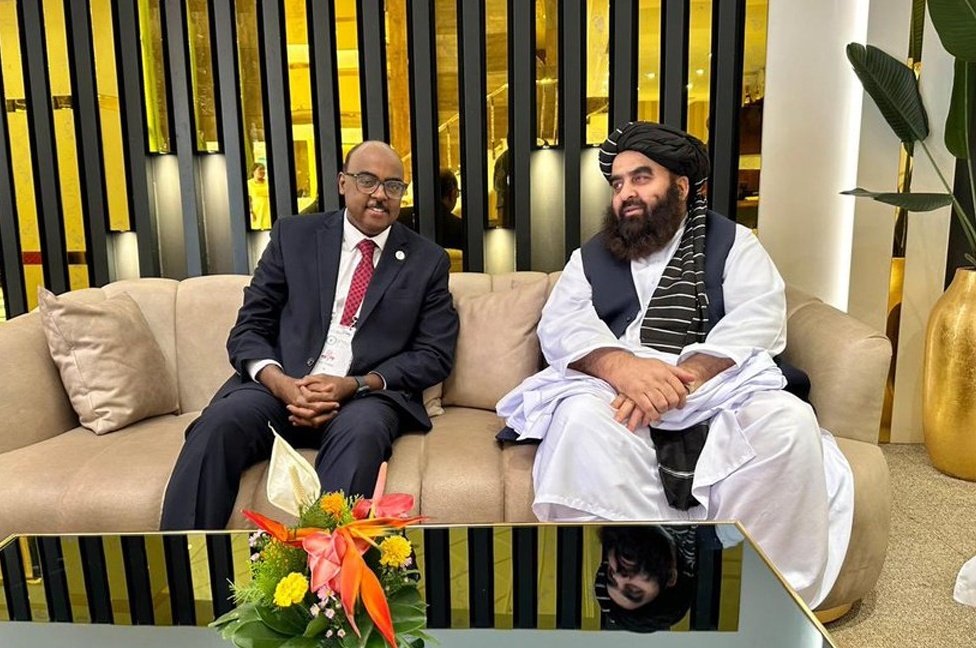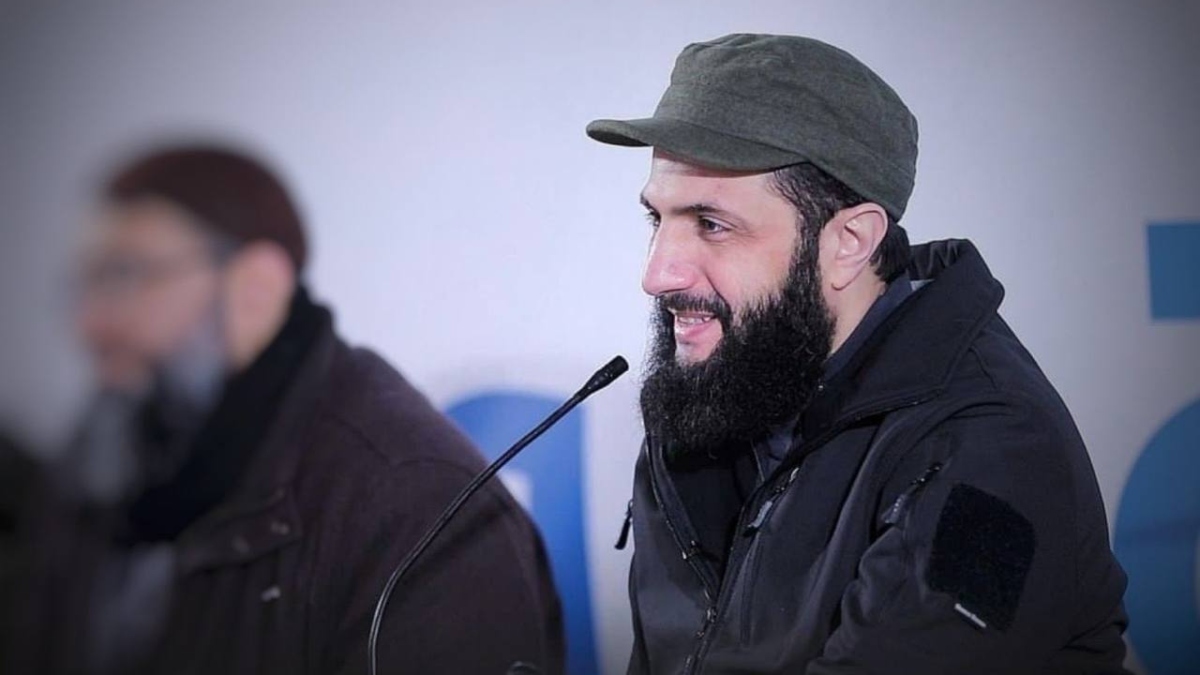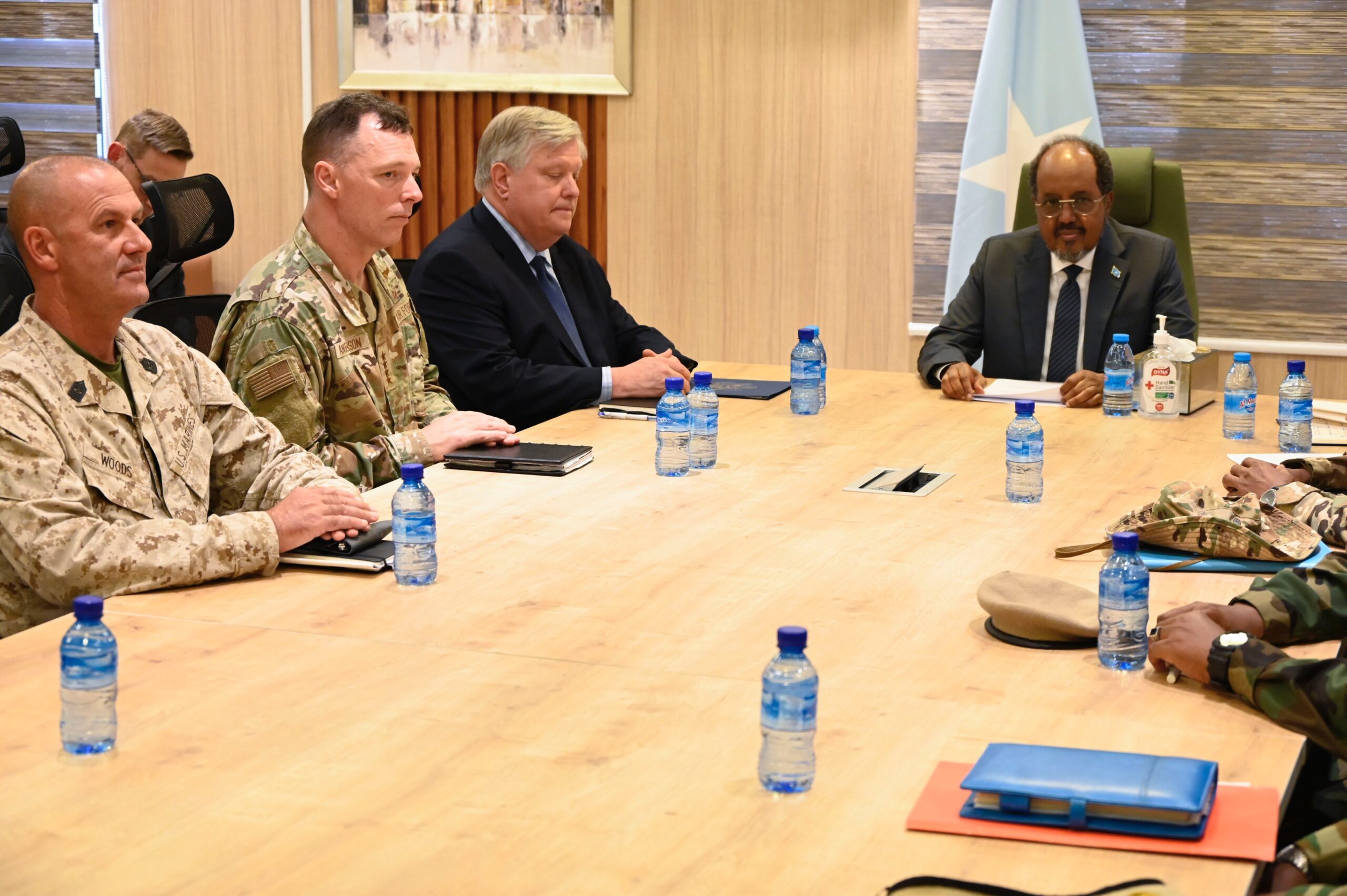Story at a glance…
-
Hayat Tahrir al-Sham’s leader al-Jolani has announced that the new Syria will be governed by Sharia law.
-
Rather than receiving an outcry of opposition from Western leaders, high level talks continue and delegations flow into Damascus.
-
The response has been much more positive than when a similar situation occurred in Afghanistan.
On December 14th, Israeli news reported that the Jihadist leader of post-Assad Syria, Abu Mohammed al-Jolani, has declared that the nation will be governed by Sharia law.
Though painstakingly attempting to present himself as a moderate reformer, such as by trimming his beard, and donning simple military fatigues or a suit jacket to try and soften his previous Jihadist image, al-Jolani has spent the last 5 years ruling Idlib Province with Sharia law enforced by his Islamist militia Hayat Tahrir al-Sham (HTS) which is an offshoot of al-Qaeda.
The general message from global media and heads of state across Europe is that al-Jolani is giving the right message and saying the right things, but that he and HTS, which is still designated as a terrorist organization by the US, UK, and EU, will be judged by their actions.
Media coverage of his swift takeover of Syria have focused on his clemency for conscripts in Assad’s army, and continuous reporting on Assad’s notorious prison system, where extrajudicial executions, torture, and disappearances were common.
It’s a dramatic and difficult-to-explain double standard when compared with media coverage of the last time a terrorist organization took over a nation’s government and attempted to reform it using Sharia law, which of course was in 2021 in Afghanistan.
Politico called the Taliban’s version of Sharia law “a return to the past,” and “the most brutal of them all”. In 2022, when the Taliban’s supreme leader ordered full implementation of Sharia law, including floggings, hangings, stonings, and other corporal punishments, The Guardian pointed out the summary judgements enacted by Taliban fighters that began appearing on social media, and of the Taliban’s long history of public flogging and executions.
The BBC, Washington Post, and others wrote about Sharia implementation in Afghanistan extensively between August and December of 2021, focusing on its harsh treatments towards women in particular, while the State Department released reports on religious freedom in which it extensively detailed the potential for the Taliban to discriminate and persecute religious and ethnic minorities in the country.

A quick end to sanctions
By contrast, al-Jolani, upon whose head a $10 million bounty remains offered by the American intelligence services, is being rapidly welcomed with open arms, and with a lack of hard skepticism that the Taliban never received.
Geir Otto Pedersen, the UN special envoy for Syria, recently met with al-Jolani in Damascus, and said the new government, whose prime minister was appointed unilaterally by al-Jolani exactly as was done in Kabul by the Taliban, will “hopefully see a quick end to sanctions, so that we can see really a rallying around building up Syria again”.
Contrastingly in Afghanistan, WaL reported in July 2022 that the American military budget was passed with an amendment that barred any money from being used in transfers to the Taliban. The US State Department budget is authorized inside the military budget. The State Department includes USAID, which handles humanitarian aid transfers. The White House also was deliberately trying to find a way of not returning the $7 billion in Kabul’s central bank reserves after the Taliban took over, and considered trying to put half of it in the hands of aid groups and another half in the hands of the 9/11 victims fund, despite the Taliban not having any role in attacking the US on September 11th.
On Monday, EU foreign policy chief Kaja Kallas said she “tasked a European top diplomat in Syria to go to Damascus to make the contacts with the new government and people there”.
In contrast, a statement issued by the end of August 2021, two weeks or so after the Taliban took power in Kabul, entirely refrained from mentioning the ruling regime until the 7th of 9 action items. In the statement, which addressed security for member states’ nationals in the country, along with international aid, and illegal immigration into the EU, discussed how member states would support “relevant international organizations,” would “work with Afghanistan’s neighbors” and would “support to third countries” particularly “transit countries,” in other words, did everything possible to avoid referring to the Taliban as the ones who controlled the country. The statement mentioned them once, only as a regime, not a “new government” as Kallas did as regards HTS.
This week the UK sent a delegation to Damascus, as confirmed by the Foreign Secretary, and Barbara Leaf, the US State Department’s senior Middle East official, will lead a delegation of her own in the coming days, according to the Financial Times.

Sharia liabilities
Of 1st page search engine results, only Foreign Policy seems to be speaking of al-Jolani’s take over of Syria with experts sufficiently skeptical of his past and future intentions for the country.
In an interview with CNN, al-Jolani stated future a Syrian government would be inclusive, without mentioning democracy specifically, and feature a “council chosen by the people”. In Idlib province, where HTS was the law and al-Jolani the ‘Emir,’ the council was made of “a small coterie of elite men,” according to Aaron Zelin, senior fellow at the Washington Institute.
“Different groups have claimed initially that they would be open and then rescinded that, whether it’s with the Islamic Revolution in Iran in 1979 or more recently with the Taliban,” Zelin told Syria Direct, echoing this very story.
WaL reported in 2022 when al-Jolani appeared in a PBS documentary—at the height of his attempts at rebranding himself as a statesman—that his rule in Idlib was maintained by terror, enslavement, and brutal punishment.
Multiple human rights groups have documented a variety of abuses and violence that characterized his version of Sharia in Idlib, including maintaining mass torture in prisons, public beheadings, imprisoning or killing journalists, ethnically cleansing Syrian Christians or forcing them to convert at gunpoint, and the small matter of uploading YouTube videos of his fighters cutting the hearts out of Syrian soldiers and eating them.
A 2017 documentary, for example, Undercover in Idlib, produced 21 minutes of footage that included such details as soldiers describing their platoon mates as “guys who like to drink blood and eat skulls” and the correct methods for how to enslave females.
Al-Jolani said in his announcement that Sharia law will be implemented with force, and force will be used against those who attempt to prevent them from implementing Sharia law. “The jihad is obligatory for this reason,” he said on the 14th of December.
If the next Syrian government implements a version of Sharia that features even half of this, there’s every reason to condemn it as strongly, if not more, than the Taliban’s version of Sharia. However, Washington DC seeing the government it built in Kabul fall wasn’t what it had planned for the region. Seeing the Assad regime fall is something Washington has been actively trying to cause or facilitate for more than a decade.
As to why a branch of al-Qaeda is being welcomed by the West as liberators, the best answers are cynical ones—it eliminates one of Iran’s allies in the region. It eliminates an overland route from Iran to Lebanon, as a result al-Qaeda is perceived as less of a threat to Israel. Lastly, with Assad gone, governments across Europe have just cause to forcefully repatriate Syrian migrants, for example in Germany where political asylum can no longer by sought by Syrians. WaL
We Humbly Ask For Your Support—Follow the link here to see all the ways, monetary and non-monetary.
PICTURED ABOVE: Abu-Mohammad al-Jolani, leader of HTS and de facto leader of Syria.



